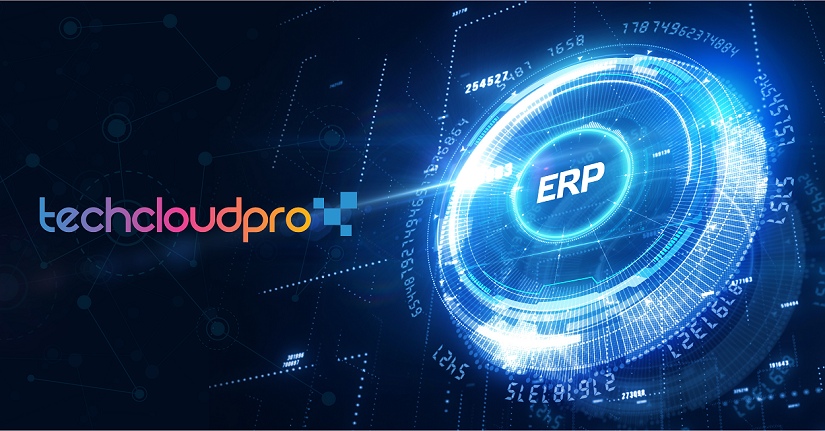The ultimate guide to ERP for beginners and experts
Posted On September Tuesday 28, 2021

As a tool for managing different operational processes, Netsuite ERP has a considerable impact on the performance and growth of a company. The following article aims to highlight what ERP is and how its implementation can benefit your company in the long run.
What is ERP?
An ERP (Enterprise Resource Planning) is a type of software that is used to automate the business processes and manage day-to-day business activities such as accounting, procurement, project management, risk management, supply chain operations, etc in a centralized database.
More simply, it is software that makes it possible to feed all the information, and the data resulting from the various activities of a company, on a single database. Later, it can be presented in the form of tools useful for decision-making (reporting, dashboards, management indicators, etc.)
Mainly there are four types of ERP:
- General ERP : With basic functionalities, general ERP systems meet practically all the classic needs of companies, and can adapt to any sector of activity.
- Specialized ERP : Adapted to sectors of activity or professions in particular, such as construction sector, commerce, logistics, health, etc.
- Open source ERP : These are free open source software, with no license is required to be able to use them, and they are often limited in terms of functionality, and less expensive in budget.
- SaaS or Cloud-based ERP : These are software whose server is outsourced to remote Datacenters and connected to the Internet. With the advent of cloud computing, these are more and more in vogue.
Must Read:-5 points to consider while choosing ERP software
The History of ERP
Late 1950s was the time when ERP emerged in the United States. Actually, its main functionality was limited to the military field where the objective is that the army of the country could organize the war strategies. At that time, the foundations of what we know today as ERP in companies were already being laid.
With the arrival of the first computers in the 60s, the first business management systems appeared that was mainly used to control inventory in specific industries. These initial prototypes led to Material Requirements Planning systems (MRPs) in the 1970s for greater control over billing and administration.
In 1980s, another step was taken with the Manufacturing Resource Planning (MRP II) system. This software was used for controlling all the productive processes and the investment of the companies. Subsequently, the official concept of ERP was born as we all know it today. For this reason, in the 90s, there was a notable advance in terms of business information management.
And, in 2000, the concept of “cloud” computing came into the picture with large-scale Internet service providers. Organizations built their own infrastructure to provide services through the web, such as Google Cloud Services, Amazon AWS, Microsoft Azure, etc. Moreover, Cloud-based ERP or SaaS model (Software as a Service) appear in this period creating a new model of this product

Why choose and ERP or integrated management software
In the current scenario, the ability of a company to minimize waste and errors is increasingly crucial to maintain adequate levels of competitiveness on the market: thus, the primary purpose of ERP systems is to precisely support this optimization challenge.
However, an ERP system also enables:
- More transparency and visibility in your distribution processes to process orders more precisely.
- Ease of inventory and cost control: multiple costing methods, tiered pricing, and series tracking.
- Perfect control of finances: integrated cash flow management, accounting, accounts payable and receivable, and reports.
- Tight assembly and distribution: advance purchases, pickup, and packaging, custom prices, stocks, orders.
- Data mining and real-time access to business performance: budgeting, forecasts, analyzes, reports.
- Optimization of the customer experience and satisfaction: sales data, follow-up of discussions, customer history.
The implementation of ERP system is now essential for all-size companies who want to stay competitive and develop their business effectively. Furthermore, NetSuite ERP today provides most companies with a lot of flexibility, with software having more open architecture, facilitating the integration of external processes and new applications, according to the needs of the users. The NetSuite ERP thus offers configurable ERPs for the first level of adaptation to processes, but above all, easily programmable for more advanced developments.
Advantages of ERP software
The main advantage that ERP provides is the possibility of obtaining a systemic view of the business, increasing the chances of adopting correct strategies for the maintenance and growth of the company in the market. But that’s just the general aspect of what the system can offer.
Find out below the details of all the essential advantages it provides for the strategic control of the business.
5 Signs that your business needs ERP software
Integration of departments
NetSuite ERP has the potential to function as an umbrella that integrates all business software and processes into a single system. Thus, the operation of departments, from strategic planning to practical application, goes through the same platform, which records their results.
Here we have the most transforming feature of the solution, as any professional has a handy system that encompasses all aspects of management, available at any time and from anywhere.
Unified management
The biggest and best consequence of the integration of processes within a company is the ability to transform each manager into a centralizer of information and processes. The larger a company, the more diverse the work of a C-Level (executive leader) professional—but that doesn’t mean it should also be more complex.
By having this unifying feature, a management ERP is able to collect, segment, and present business data in a simple, intuitive way that makes sense within its work.
Risk reduction
With all the information under control, you can identify risks or failures in advance and have more autonomy and security to act and redefine routes whenever necessary. Having this preventive view in ERP also avoids production stoppages for maintenance, which would delay production.
In addition, it is also important to highlight that in NetSuite cloud-based ERP there are specific modular solutions for each area of your company, allowing you to add or remove functions according to your preferences and needs at this time of resumption. Therefore, it is important for the user to analyze the different options available to find the one that best meets the company’s demands.
Improved accounting and tax management
Technology is, without a doubt, an excellent and powerful ally for companies. What ends up proving this statement is the ERPs, which optimize the accounting and tax management of the business! With the huge amount of information that managers need to deal on a daily basis, it is almost impossible to complete this task without the help of business management software.
We live in a country with high taxation, so companies have to adopt strategies to reduce costs with various taxes. By implementing an ERP management system, it is possible to automate the controllership, reducing failures related to fines, tax authorities, and other expenses.
ERP can gather and store accounting and tax information with greater security and is therefore essential for many medium and large companies.
Wrapping Up
ERP software is kind of a backbone of today’s business market. Relying on its benefits can achieve good results and pave the way to make a company more competitive and flexible. The business will begin to adapt to the customers and not the other way around.
Now that you know what ERP exactly is! In addition to knowing that, it is equally essential that you choose the right NetSuite Consultant to implement this system that can bring numerous benefits to your business.

